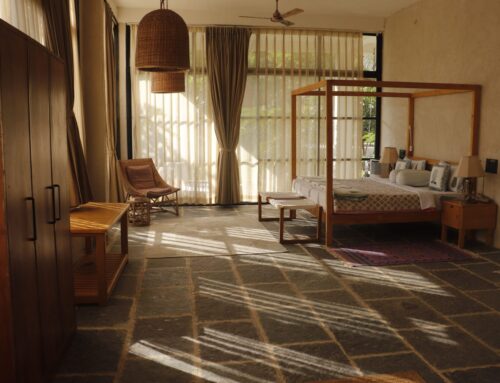Is wealth a spent argument, or can India find new way?
Shoba Narayan
Last Updated: Apr 9, 2011
Antilia Tower, the new residence of Mukesh D. Ambani, chairman of India’s Reliance Industries Ltd., stands in Mumbai, India, on Thursday, Oct. 28, 2010. Ambani’s personal wealth is estimated to be $27 billion. Photographer: Adeel Halim/Bloomberg *** Local Caption *** 755760.jpg
next photo
previous photo
Go to photo 0
next photo
previous photo
About this time of year New Yorkers develop a fascination with the property market in the Hamptons: who is renting, who is buying and which property?
As the scent of summer arrives, the desire to snag a rental at this enclave of the rich and famous becomes stronger.
Why are we so fascinated by the wealthy? We may sneer but we also want to know how they live and spend their money.
The rich, as it turns out, are not that different – from each other, that is. Many of them seek tax havens through buying vineyards and giant tracts of land, and spending money on yachts, private jets and collectibles.
This year’s edition of The Wealth Report, released this week, suggests the richest invest about 35 per cent of their wealth in property. Most buy second and third homes in other countries.
Monaco, London and New York are high on the list but this year so are cities such as Sao Paulo, Shanghai, Mumbai and Singapore, all of which are booming with double-digit growth.
Other cities such as Chicago, Dublin, Los Angeles and Hanoi are sagging, thanks to oversupply and dwindling demand.
The Wealth Report, released by the property company Knight Frank and Citi Private Bank, polled 5,000 ultra-high net worth individuals, each worth more than US$100 million (Dh367.2m), who are clients of Citi Private in 36 countries.
India and China feature prominently in the survey, not least because India has 47 dollar billionaires, and China has 72. The UK has 42, Russia has 58 and the US has 396.
Mumbai is the seat of the property market in India, where the average price for a luxury property unit is $17,000 per square metre, several times more than what the average Indian makes in a year.
Bangalore, the only other Indian city that features in the survey, holds number 52 with an average price of $4,300.
Next to buying property, 64 per cent of the Indian rich want to buy yachts and private jets over the next five years, compared with Africa’s 50 per cent and Latin America’s 20 per cent.
Does how you accumulate and spend your wealth follow an almost inevitable pattern globally as each nation goes through its developing phase; or can the pattern be broken, avoided or changed? In other words, can the newly rich in India and China spend their wealth in a more “sophisticated” or sustainable fashion or will they follow global luxury trends?
You could argue (as I do) that the Indian rich are simply copying the West in their desire for yachts and other such trappings.
The evidence so far suggests the Indian rich will behave no differently from those across the world, and particularly in Asia. The Japanese became wealthy and bought Gucci. The Chinese favour Louis Vuitton and very expensive Bordeaux wines, neither of which have cultural resonance with their heritage.
One factor that does play a role in how the very rich spend their money is if they belong to a strife-torn nation. The wealthy in Africa or parts of the Middle East park their money abroad and use a significant portion of it for their personal security. But the extremely wealthy in Europe spend freely on lifestyle.
The Indian rich could choose a third path. This week, the social activist Anna Hazare began his fast until death to protest against corruption. His fast has galvanised every segment of society.
On the one hand, you have reports trumpeting the arrival and spending power of India’s super-rich. Parallel to this runs a dispiriting thread of what the economist Raghuram Rajan calls the “oligarchic capitalism” of India.
India’s oligarchs could contribute towards making India a society with a more equitable distribution of wealth; not out of some altruistic motive, but so they can live and spend easier without fear of a revolution stripping them of their property.
After all, it is one thing to park your money in a Swiss bank; it is quite another to enjoy your wealth every single day without fear or guilt.
Perhaps next year, The Wealth Report will include a section on sustainable spending.




Leave A Comment